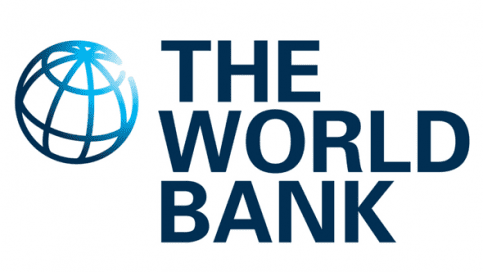In its January 2021 Global Economic Prospects report, the World Bank disclosed that Nigeria’s growth is expected to resume by 1.1 per cent in 2021 from a contraction of 4.1 per cent in 2020.
The report said, “Growth in Nigeria is expected to resume at 1.1 per cent in 2021.
“Activity is nevertheless anticipated to be dampened by low oil prices, OPEC quotas, falling public investment due to weak government revenues, constrained private investment due to firm failures, and subdued foreign investor confidence.”
The report also revealed that output in the Sub-Saharan Africa region contracted by an estimated 3.7 per cent in 2020, as the COVID-19 pandemic and associated lockdowns disrupted economic activity. As a result of this, per capita income shrank by 6.1 per cent in 2020, setting average living standards back by at least a decade in a quarter of Sub-Saharan African economies.
READ ALSO: COVID-19: Lai Mohammed Insists FG Has No Plan for Fresh Lockdown
Countries with large domestic outbreaks, those heavily dependent on travel and tourism, and commodity exporters, particularly oil exporters were said to be seriously affected.
The report stated that in Nigeria and South Africa, output fell sharply last year.
It said, “Nigeria’s economy is estimated to have contracted 4.1 per cent in 2020, as the effects of the pandemic impacted economic activity in all sectors.
“In South Africa, where economic activity was on weak footing before COVID-19, output is estimated to have fallen 7.8 per cent last year.
“The country suffered the most severe outbreak of the pandemic in the region and underwent strict lockdowns that brought the economy to a standstill.”
Growth in South Africa is expected to rebound to 3.3 per cent in 2021. An expectation of weak growth momentum reflected the lingering effects of the pandemic and the likelihood that some mitigation measures would be needed to remain in place.
It stated, “The global economy is expected to expand four per cent in 2021, assuming an initial COVID-19 vaccine rollout becomes widespread throughout the year.
“A recovery, however, will likely be subdued, unless policy makers move decisively to tame the pandemic and implement investment-enhancing reforms.”
The World Bank said the pandemic had caused a heavy toll of deaths and illness, plunged millions into poverty, and may depress economic activity and incomes for a prolonged period.
It stated that to support economic recovery, authorities also needed to facilitate a re-investment cycle aimed at sustainable growth that is less dependent on government debt.
The World Bank Group President, David Malpass, said, “While the global economy appears to have entered a subdued recovery, policymakers face formidable challenges—in public health, debt management, budget policies, central banking and structural reforms—as they try to ensure that this still fragile global recovery gains traction and sets a foundation for robust growth,”
According to him, there needs to be a major push to improve business environments, increase labour and product market flexibility, and strengthen transparency and governance to overcome the impacts of the pandemic and counter the investment headwind.

